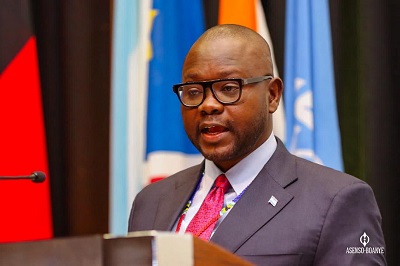
Participants at a forum on settlements and slums have called for the strengthening of land governance systems, and planning of land to include informality and housing needs to address development of slums.
They further urged for the establishment and adequate resourcing of flexible finance mechanisms to respond to the needs of lowest income groups.
This was part of a communique issued after their two day-meeting and launch of the Global Action Plan Framework on Informal Settlements and Slums, held in Pretoria, South Africa.
Minister of Works and Housing, Francis Asenso-Boakye presented the communique after two-day high-level meeting that brought together world leaders, including Ministers and other senior government representatives sought to find lasting solutions to the global menace of informal settlements.
The communique asked countries across the globe to target incremental provision of affordable, habitable, and accessible housing with available basic services, in thriving locations.
“This should be characterised by availability of education and social facilities, integrated and targeted health care services, and safe and accessible public spaces of high quality, connected through inclusive mobility options and economic opportunities,” it stated.
The communique urged countries to guaranteeing secure tenure and land regularisation, increasing the supply of well-located land for housing through under-utilised and vacant land and buildings.
It called for a review of the enabling legal, regulatory, planning, investments, and institutional frameworks, at local, metropolitan, and national levels.
“This should aim at establishing transformation targets with a long-term perspective as well as mid-term benchmarks, to create, mandate and capacitate institutions for implementation,” the communique stated.
It said there should be strengthening of local level governance ecosystem to ensure community participation and political empowerment and ensure strengthening of institutions to make community participation effective.
“Ensure equitable and empowered participation of the residents through direct involvement in the design of solutions, following a people-centred development approach. Public sector, private sector and civil society capacity should be as much as possible fully leveraged,” the communique added.
It urged for improvement in methodologies at census level in order to reflect more accurately the reality of informal settlements and households, and disaggregated data to help decision making.
MrAsenso-Boakye, in his remarks, further highlighted that the Action Plan was a timely and strategic multiple-partnership initiative with the leaders committing to initiating global, regional, national, and local transformation.
“We commit to look at eight years of the Decade of Action to build the foundation for transformation in future and introduce an initial benchmark that is catalytic to meet the needs of one billion slum dwellers today and three billion in 2050, if no action is taken”, he said.
BY TIMES REPORTER





